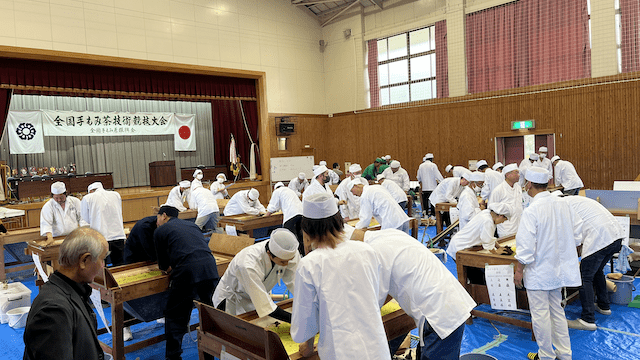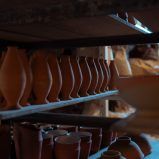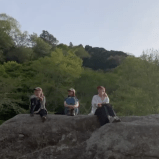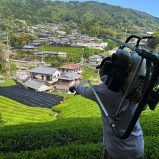Hello, staff member Pau here. On the 14th of November, the National Hand Rolling Competition was held in the city of Fujieda, Shizuoka Prefecture. As per tradition, the Wazuka Hand Rolling Preservation Society participated, representing Wazuka in the competition. If you missed the news, last year’s team, consisting of Kenta-san, Simona, and our very own Akky-san, secured the first-place victory!
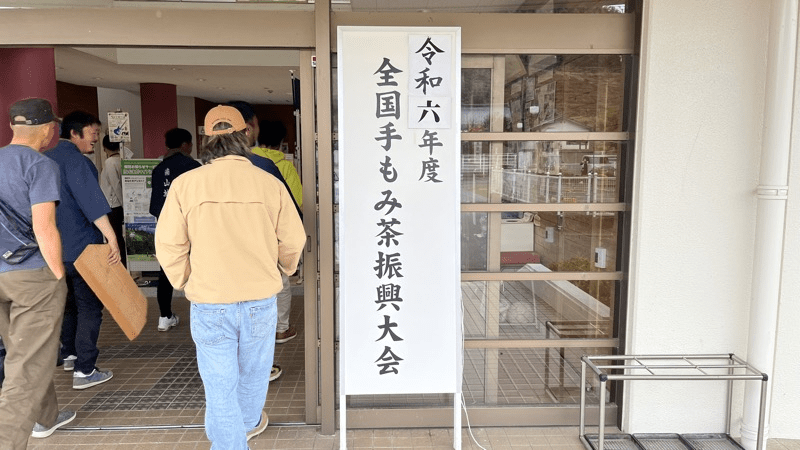
This year, Wazuka had the opportunity to participate with two teams, allowing more people from the preservation society to give it a shot. I was extremely humbled and grateful to Akky-san for giving me his spot so I could participate as a competitor this year. Thank you so much, Akky.
I participated in the Wazuka Team B, together with two other farmers from Wazuka, Akio and Nishiyama-san. This year, victory was not on our side; congratulations to the Fujieda team!
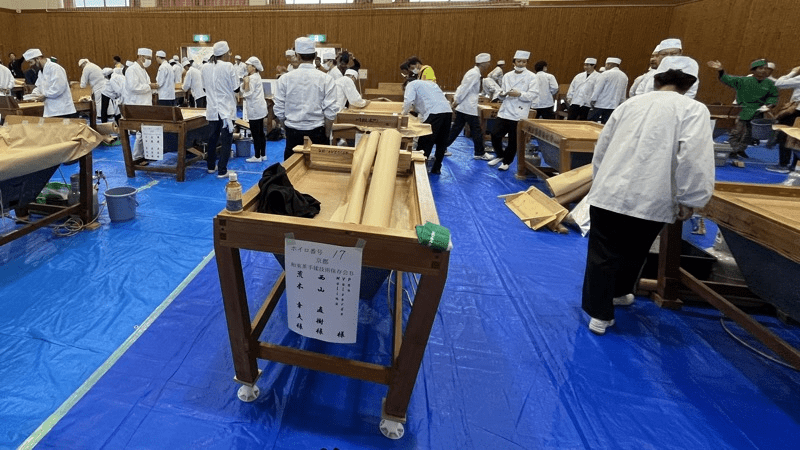
The competition started just a few minutes before 9 AM, and the time limit for finishing the tea was 5 hours. That really surprised me as during the training rounds, we usually take 6 hours to complete a batch of tea. A week before the competition, Akky organized a training session where we could warm up for the competition as well as an educational experience for the interns. It was a great experience, but it took around 7 hours all along as we were trying things out.
During the competition, we started with fairly big leaves that were distributed on the Hoiro, the paper-covered table used for hand rolling. It was such a view to see so many tables lined up. A fun thing that happened is that every team, after finding their assigned table, immediately put extension legs under the table to raise them; they are so low.

Although the leaves provided by the organizers were fairly big, they were also high in moisture. My teammates and other tables were also talking about it and wondering where they had harvested them. It was great material, but in our case, such high moisture meant we finished making the tea literally 8 minutes before the time limit. It was a trend among most of the Kyoto region teams, which seems to sync their timings. Perhaps the Kyoto style of hand rolling had something to do with this. Nonetheless, I am so grateful to have had the opportunity to participate in the competition. It was a great learning experience both from a professional side and also from a personal standpoint.
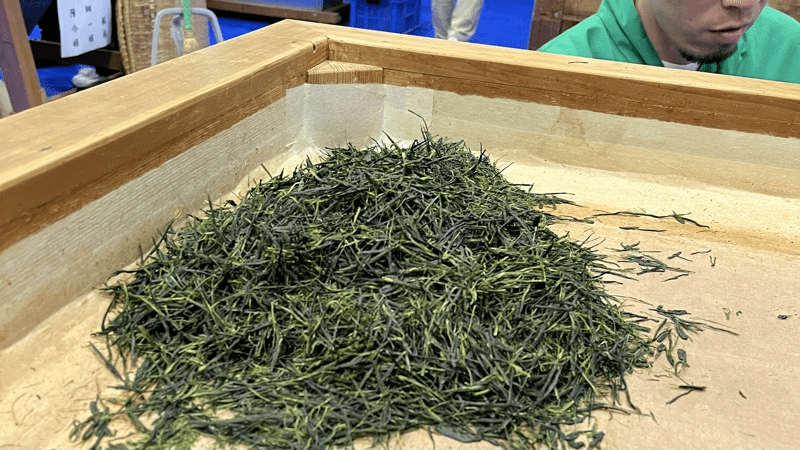
I got to meet many tea farmers from a wide spectrum of ages, prefectures, and backgrounds. It was motivating to see all of that tapestry congregating to celebrate the traditional methods of hand rolling.
If you would like to experience the magic of hand rolling on your own, we do host a very special workshop with Kenta-san himself several times per year! You can check it in the events page ici or take a look at the links below.
Latest posts

